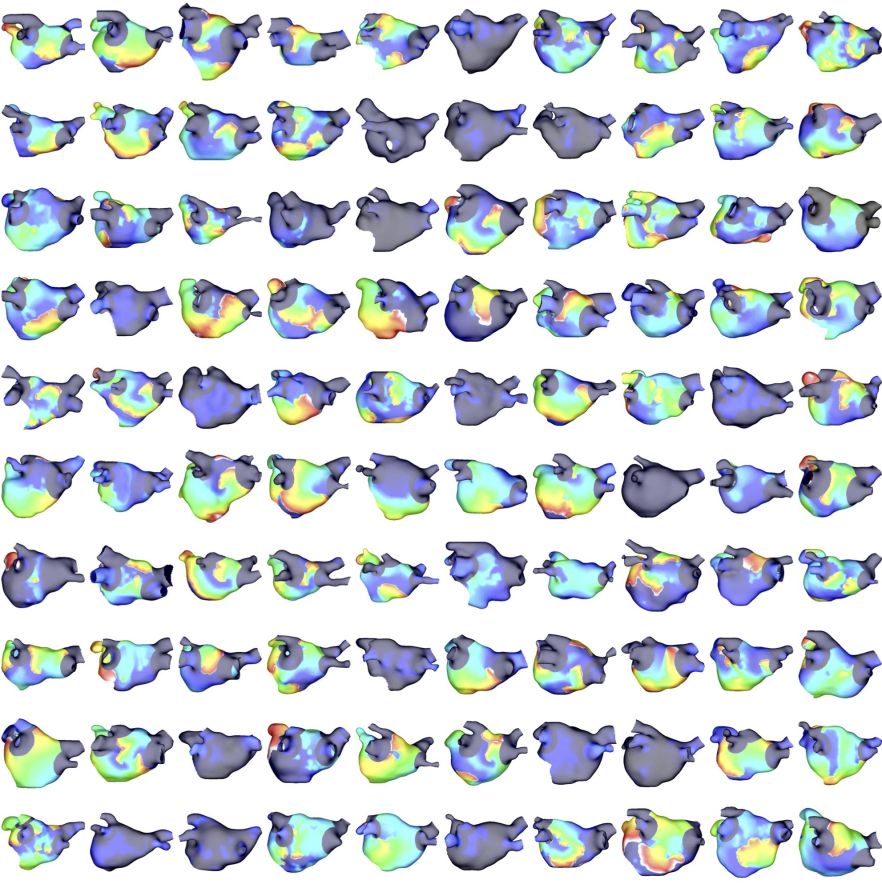Research
Predicting Atrial Fibrillation Mechanisms Through Deep Learning
| Funding source(s): | MRC Medical Research Council / Medical Research Council |
| | Start: 01-10-2021 / End: 31-10-2022 |
| | Amount: £191,148 |

Persistent atrial fibrillation (AF) patients are a heterogeneous population: some patients require multiple procedures, with more extensive ablation strategies; while for others, isolation of the pulmonary veins using ablation (PVI) is sufficient. Identifying persistent AF patients where PVI will be a sufficient treatment remains a clinical challenge, which if solved could lead to improved safety, better patient selection, as well as decreased time and cost for procedures. Biophysical simulations personalised to cardiac imaging and electrical data may offer substantial insights into the mechanisms underlying AF, but run too slowly to be used during clinical procedures. My objective is to develop a combined biophysical simulation and deep learning network pipeline that accurately quantifies the likelihood of success of PVI for an individual patient quickly enough for use during a clinical procedure, to guide ablation therapy.


